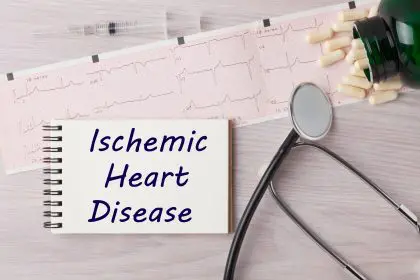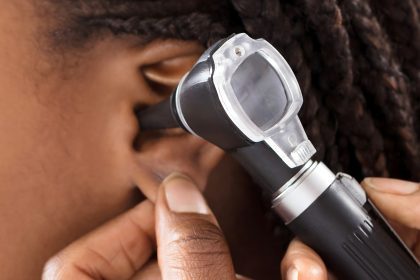That little number on your fitness tracker might be more important than you realize. Your resting heart rate isn’t just some random vital sign. It’s essentially a window into how efficiently your heart is working, and possibly even how long you might live. The lower it is, the less strain on your cardiac system.
The average adult has a resting heart rate between 60 and 100 beats per minute. But here’s the thing most people don’t know: athletes and highly fit individuals often have rates in the 40s or 50s. Their hearts are so strong they can pump more blood with each contraction, requiring fewer beats to circulate the same amount of blood. The good news? You don’t need to be an Olympian to lower your number. Let’s explore how to naturally bring down that beat without a single prescription.
Aerobic exercise is non-negotiable
If you could only make one change to lower your resting heart rate, this would be it. Regular cardiovascular exercise strengthens your heart muscle, allowing it to pump more efficiently. Start with just 20-30 minutes of moderate activity most days of the week. Walking, cycling, swimming, dancing—pick something you actually enjoy so you’ll stick with it.
The key is consistency over intensity. A daily 30-minute brisk walk will do more for your heart rate than a single brutal workout once a week. Your heart adapts to regular demands placed on it, becoming stronger and more efficient over time. Many people see measurable drops in their resting rate after just a few weeks of consistent movement.
The “talk test” is a perfect way to gauge your ideal exercise intensity. You should be able to speak in short sentences, but not sing comfortably. This moderate zone is where heart strengthening happens without overwhelming your system. As your fitness improves, you’ll notice your recovery time shortens after exertion—another sign your heart is becoming more efficient.
Breathing techniques with surprising power
Your breath has a direct line to your heart rate, yet most people completely overlook this connection. Slow, deep breathing activates your parasympathetic nervous system—the “rest and digest” mode that counters stress responses. Even just five minutes of controlled breathing can noticeably lower your heart rate in the moment.
The 4-7-8 technique works wonders for many people. Inhale quietly through your nose for 4 seconds, hold for 7 seconds, then exhale completely through your mouth for 8 seconds. This pattern signals to your body that it’s safe to relax, lowering stress hormones that keep your heart racing. Practice this for 5 minutes daily, and you’ll likely notice both immediate and long-term effects on your heart rate.
Box breathing is another powerful technique used by elite military units to stay calm under pressure. Inhale for 4 counts, hold for 4, exhale for 4, and hold again for 4. The symmetry of this pattern helps regulate your autonomic nervous system. With consistent practice, you’re essentially retraining your heart’s default settings to operate at a lower baseline.
Sleep quality matters more than quantity
Poor sleep is a heart rate killer. When you don’t get enough quality rest, your sympathetic nervous system stays activated, keeping your heart rate elevated even during rest. One study found that just one night of poor sleep can raise resting heart rate by 5-10 beats per minute the following day.
Temperature makes a massive difference in sleep quality. Your body needs to cool down to initiate deep sleep, so keep your bedroom between 65-68°F. Using cooling mattress pads or lightweight, breathable bedding can help if you tend to sleep hot. The deeper your sleep, the more time your heart has to recover and reset.
The 90-minute rule can transform your mornings. Sleep cycles average about 90 minutes, so timing your wake-up to align with the end of a cycle helps you avoid the grogginess of being awakened during deep sleep. Try setting your alarm for either 7.5 or 9 hours after going to bed to increase your chances of waking during a natural transition point, reducing the morning stress response that can elevate heart rate.
Nutrition tweaks with cardiac benefits
That morning coffee might be sabotaging your heart rate goals. Caffeine stays in your system much longer than you probably realize—up to 10 hours for some people. Try cutting back gradually and notice how your body responds. Many people discover their afternoon heart rate drops significantly just by switching to half-caf or decaf after noon.
Surprisingly, when you eat can matter as much as what you eat. Large meals require significant digestive resources, temporarily increasing heart rate as blood rushes to your digestive system. Trying smaller, more frequent meals spreads this workload out, preventing the heart rate spikes that can occur after heavy meals. This approach also tends to stabilize blood sugar, another factor that can influence heart rate.
Magnesium is the unsung hero of heart rate regulation. This mineral helps regulate muscle contractions—including your heart muscle. Many of us don’t get enough through diet alone. Dark leafy greens, nuts, seeds, and legumes are excellent sources. Some people notice significant heart rate improvements within weeks of correcting a magnesium deficiency through diet or supplementation.
Hydration status affects heart efficiency
Even mild dehydration makes your heart work harder. When fluid levels drop, blood volume decreases and becomes more concentrated. Your heart must beat faster to maintain blood pressure and circulation. Many people walk around slightly dehydrated without realizing it, keeping their heart rates unnecessarily elevated.
The color of your urine is actually one of the most reliable hydration indicators. Aim for a pale straw color rather than clear or dark yellow. This simple visual check can help you fine-tune your fluid intake based on your body’s actual needs rather than following generic recommendations that might not be right for you.
Adding electrolytes can make a noticeable difference in how effectively your body uses the water you drink. Sodium, potassium, and magnesium help regulate fluid balance and muscle function. A pinch of high-quality salt and a squeeze of lemon in your water bottle provides a simple electrolyte boost that helps maintain optimal heart function without the added sugars of commercial sports drinks.
Stress management beyond the obvious
Chronic stress keeps your heart rate perpetually elevated through constant cortisol and adrenaline circulation. While you can’t eliminate stress entirely, you can change how your body processes it. Regular meditation creates measurable changes in your autonomic nervous system’s baseline function. Even just 10 minutes daily trains your body to recover from stress more efficiently.
Nature exposure is remarkably effective at lowering heart rate. Research shows that just 20 minutes in a natural setting significantly reduces stress hormones and heart rate. The combination of negative ions, natural sounds, and visual patterns in nature seems to reset our nervous systems in ways urban environments can’t match. Make it a priority to get outside daily, even if it’s just sitting under a tree during your lunch break.
Heart rate variability training offers a direct path to improved cardiac efficiency. Unlike meditation, which focuses on mental states, HRV training provides real-time feedback on how your heart is responding to your breathing patterns. Apps and devices that measure this variability can help you learn to consciously influence your heart’s rhythm, eventually leading to a lower resting rate. Think of it as strength training for your cardiac control systems.
The journey to a lower resting heart rate isn’t about quick fixes. It’s about creating a lifestyle that naturally allows your heart to work more efficiently. Start with one or two changes that seem most doable for your situation. Even modest improvements in your resting heart rate correlate with significant health benefits and potentially added years of life. Which approach will you try first?

















